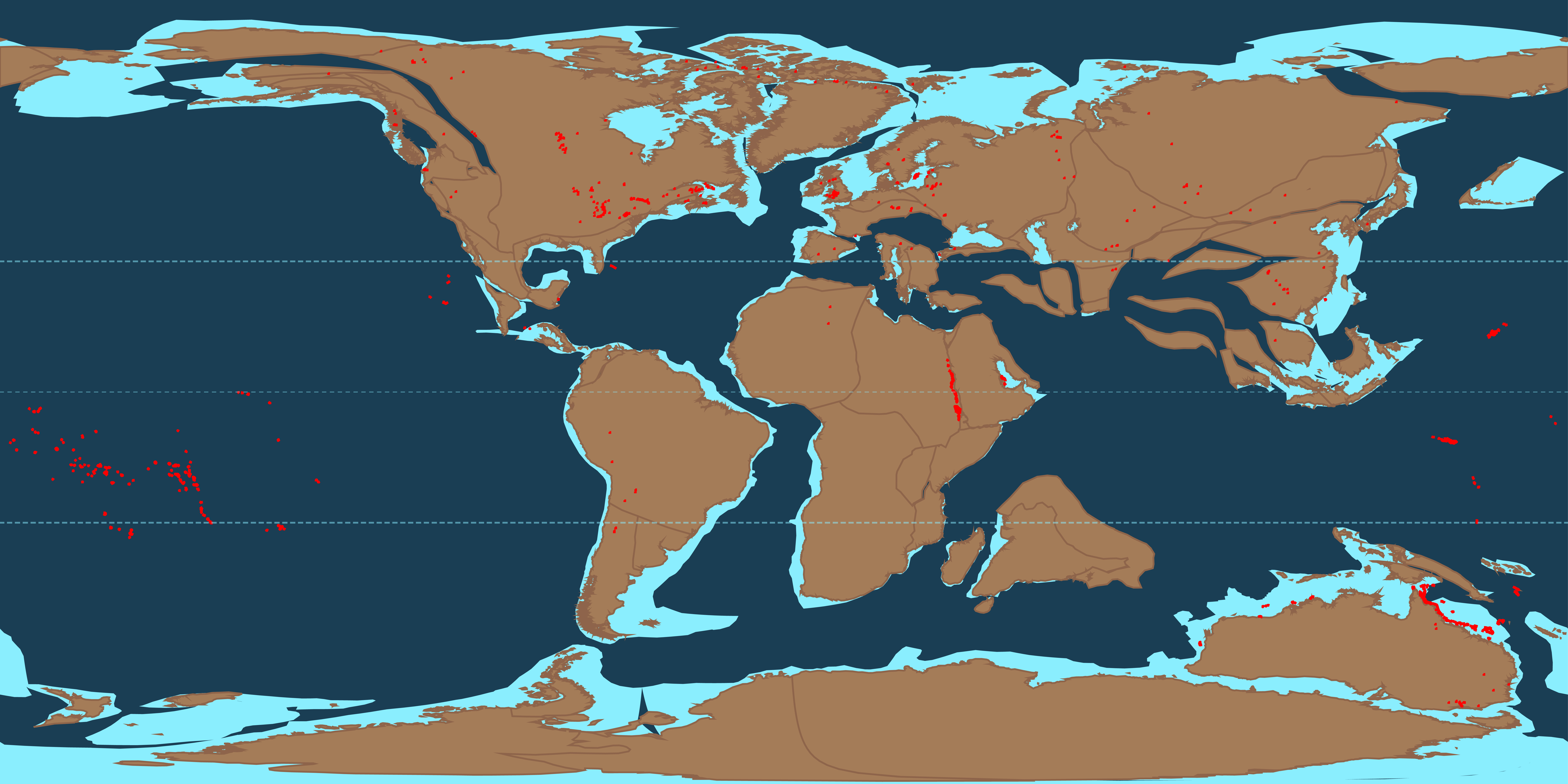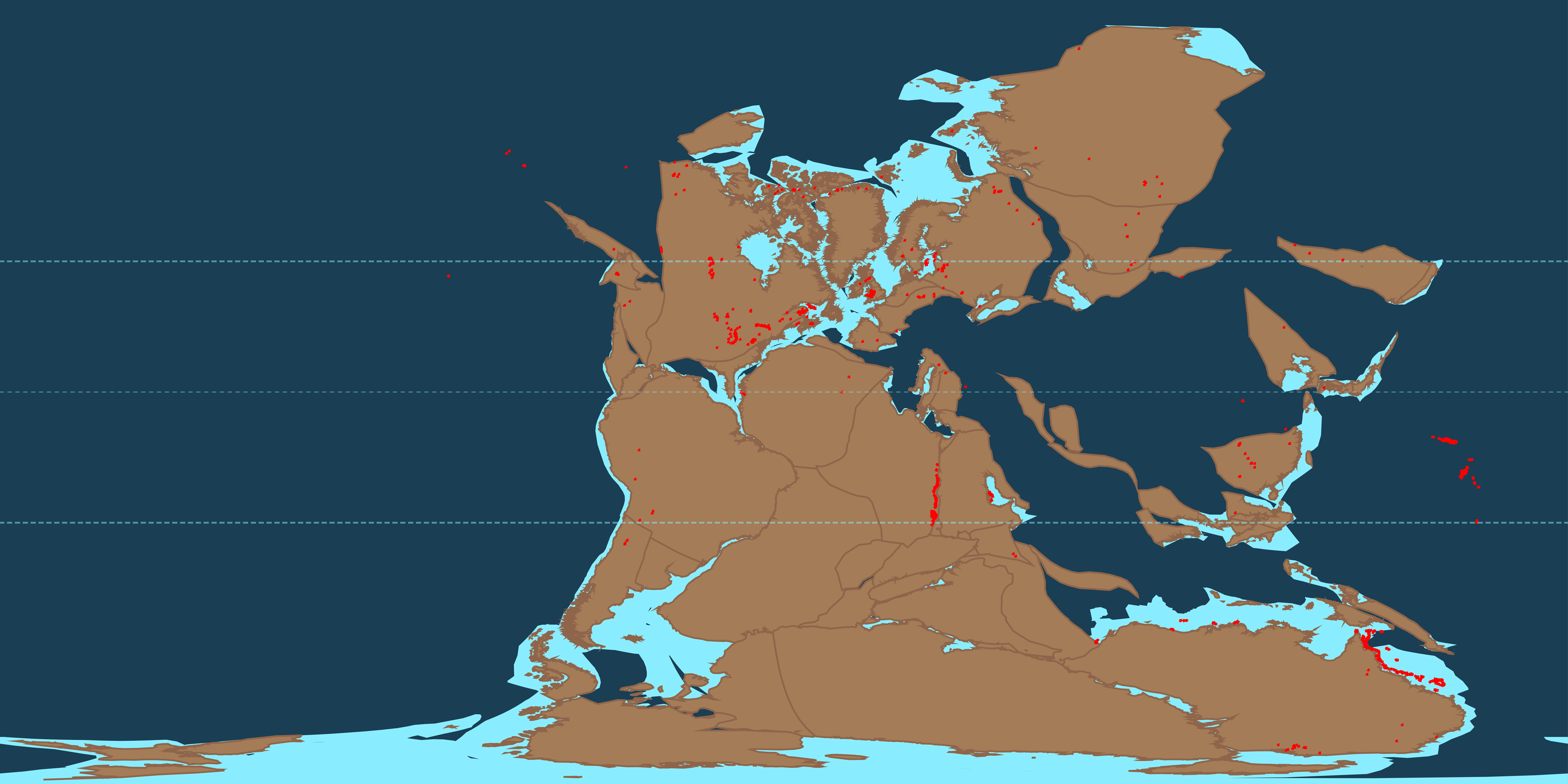Photo Gallery
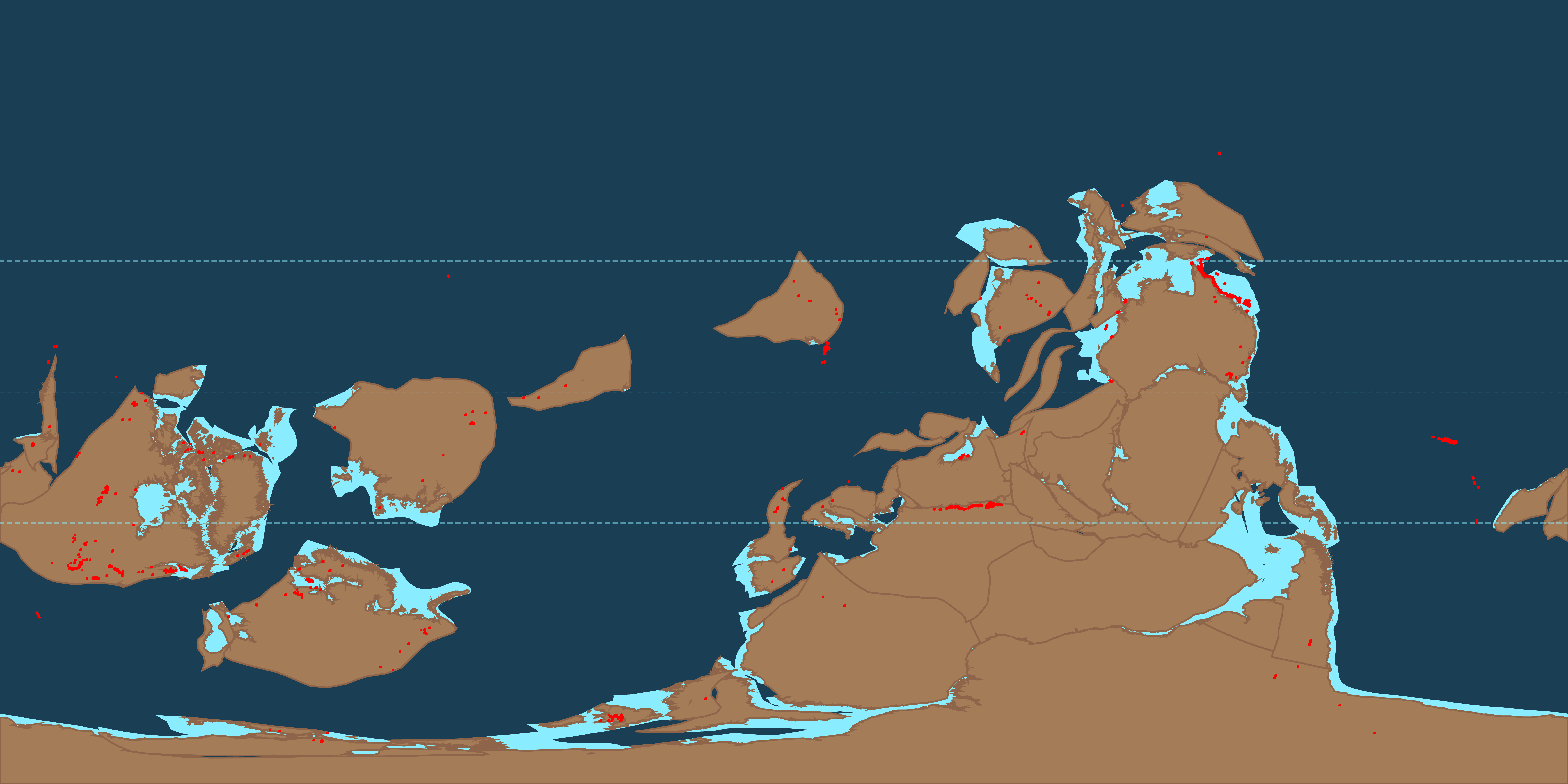
Earth during the Cambrian Period, 540 million years ago, with reef sites highlighted in red.
© The Field Museum
© The Field Museum
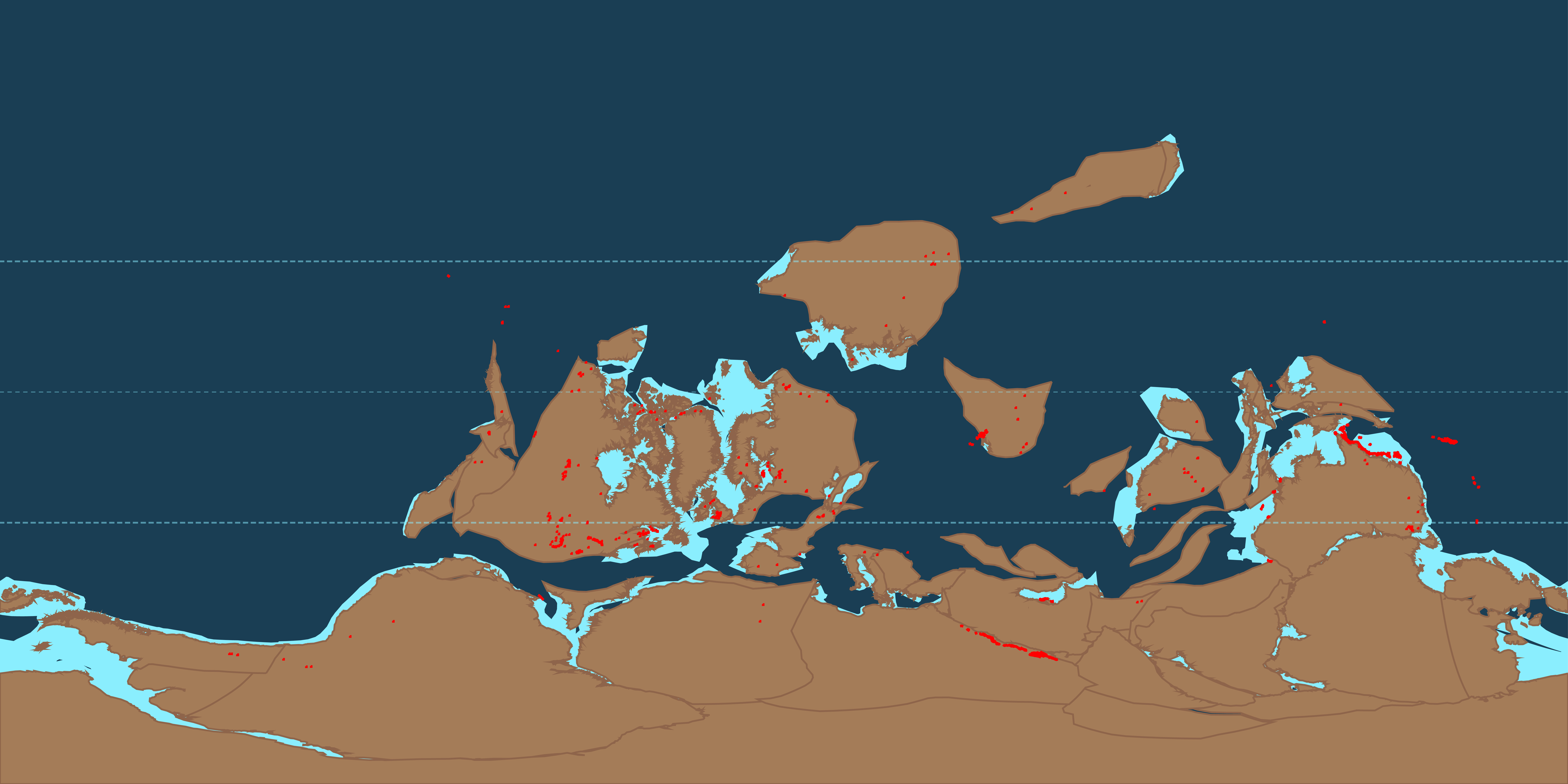
Earth during the Devonian Period, 370 million years ago, with reef sites highlighted in red.
© The Field Museum
© The Field Museum
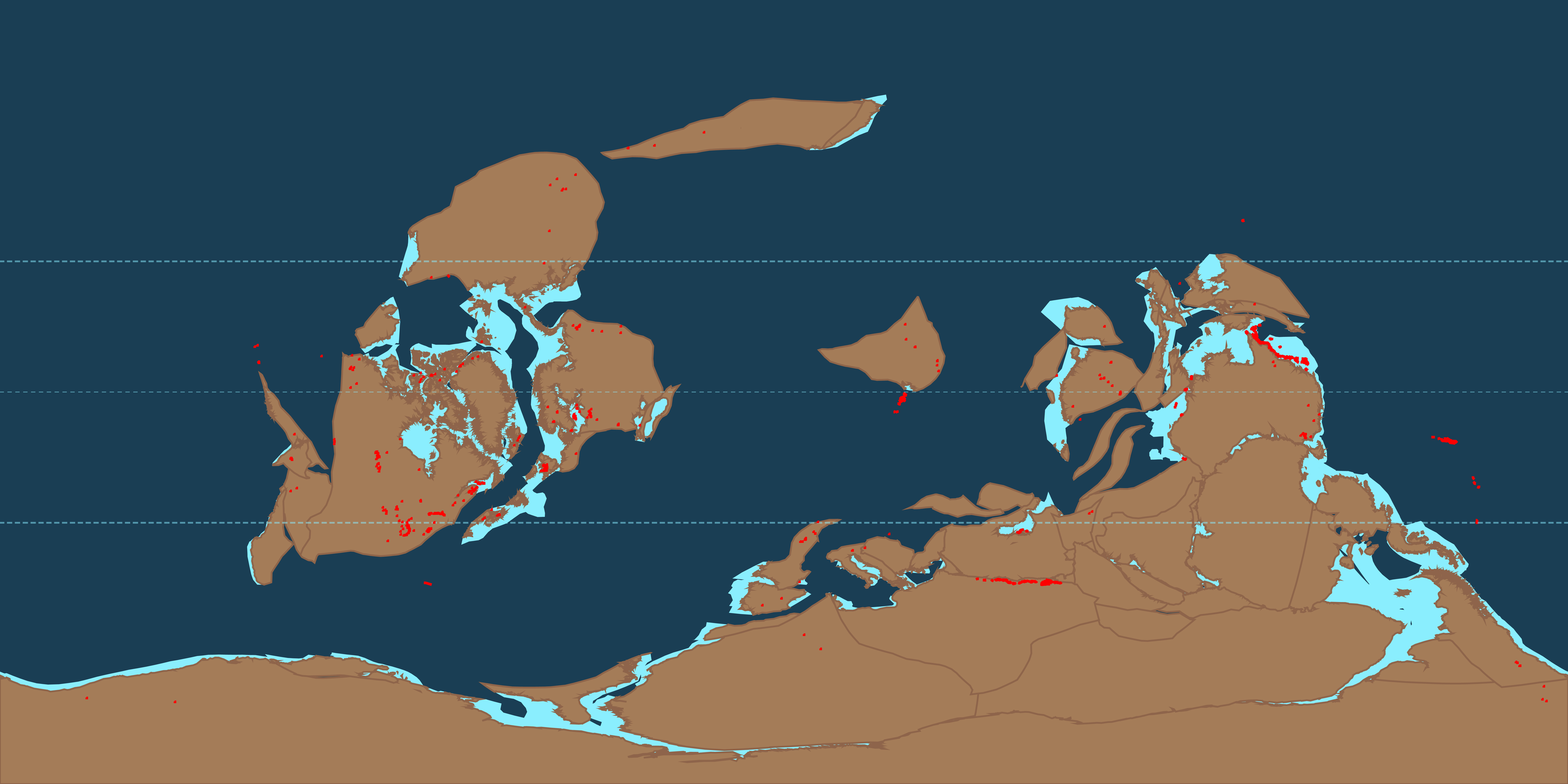
Earth during the Silurian Period, 430 million years ago, with reef sites highlighted in red.
© The Field Museum
© The Field Museum

